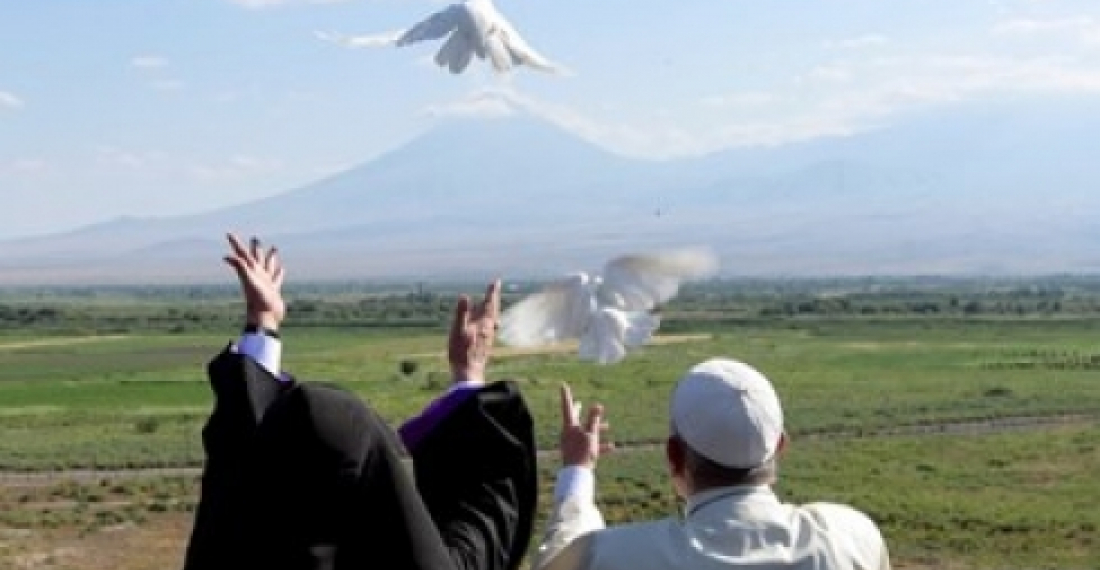Pope Francis has ended a three day visit to Armenia during which he pushed for unity between the Roman Catholic Church and the Armenian Apostolic Church, and preached for peace, justice and reconciliation in the world.
Commonspace.eu followed the Pope's visit in a live blog which you can read here
Commonspace.eu political editor commented on the Pope's visit:
This was the visit of the head of the largest Christian Church - the Roman Catholic Church, to one branch of Christianity, the Armenian Apostolic Church, that broke from Rome in the fifth century over a theological argument about the nature of Christ as the son of God. The Pope saw the visit first and foremost as part of the process to bring about reconciliation and eventual re-unification. This theme dominated the visit and the Pope's speeches. For sure this is not something that will happen soon. But Churches think with a longer term perspective than governments, so for the Pope this was an important building block in a long term strategy.
The visit however had also a lot of political significance for Armenia. Locked in a political, military and strategic alliance with Russia, Armenia's special relationship with the Roman Catholic Church presents the possibility of maintaining a balance in the country's global relationship and foreign orientation. Pope Francis has shown a willingness to reach out to the Armenian people that goes way beyond normal Vatican diplomacy. In Armenia over the last three days he has spoken with passion about Armenia's faith, history and suffering. His decision to add to the prepared script and again refer to the atrocities against Armenians in Anatolia in 1915 as genocide would have probably upset some, even within the conservative Vatican diplomacy. Vatican officials in the run up to the visit had briefed the media that he would probably not need to use the word again. There will be a reaction from Turkey, although it may be muted. But apart from the diplomatic sphere, many in Turkey would see the Pope's words as another example of anti Turkish sentiment in Europe.
Peace was supposed to be the other key element of the Pope's visit. Frankly very little was said and many will be dissapointed that the Pope did not use more forceful language to push for peace in the Caucasus.
However overall for Armenian diplomacy this visit was a huge success. Church and State worked well together to deliver this successful visit. The role of Armenia's Ambassador to the Holy See, Mikayl Minasian, in this was significant. The Pope's visit was also an excellent public relations exercise. The media coverage in Europe and world wide was less than was expected, given the brexit news story that has dominated the news right through the Pope's visit. Yet whatever media coverage there was would have generally pleased the Armenians.
For the Vatican the visit was successful too, yet there may be a cost attached to this. The Pope will visit Azerbaijan at the end of September. Quite how that visit will be handled will have to be seen. It will be a different kind of visit. Azerbaijan is a Muslim country with only a very small Catholic community. But the Catholic Church is universal and does not like to have empty spots on the map. The Vatican will therefore have to develop a discourse that can reconcile what the Pope has said in Yerevan with what he may want to say in Baku."
source: commonspace.eu with Vatican Radio and agencies
photo: Pope Francis and Armenian Catholicos Patriarch Karekin II released white pigeons in the direction of Turkey at the end of the Pope's visit to Armenia from 24-26 June. (picture courtesy of Vatican Radio).






